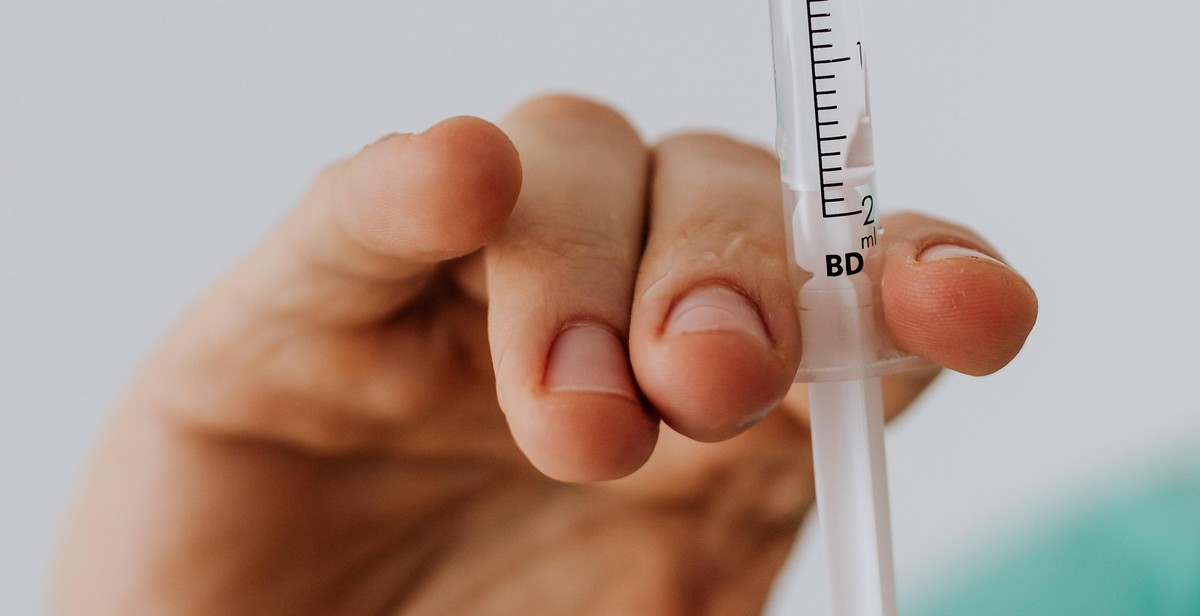Introduction: Why is Maintaining Overall Well-being Important after Vaccination?
Vaccines have been a crucial tool in preventing the spread of diseases and keeping individuals healthy. With the ongoing COVID-19 pandemic, vaccines have become even more critical to protect ourselves and others around us. However, getting vaccinated does not mean that we can let our guard down and ignore our overall well-being. In fact, maintaining good health after vaccination is crucial to ensure that our immune system is functioning optimally and that we are protected from other illnesses.
After getting vaccinated, our bodies may experience some side effects, such as fatigue, headache, and muscle pain. These symptoms are normal and usually subside within a few days. However, they may affect our daily activities and hinder our ability to maintain a healthy lifestyle. Additionally, getting vaccinated does not guarantee that we will not get sick from other illnesses or infections.
Therefore, it is essential to take care of our physical and mental health after vaccination. In this article, we will provide tips on how to stay healthy after vaccination, including maintaining a balanced diet, staying physically active, getting enough sleep, managing stress, and staying up-to-date with routine medical check-ups.

1. Stay Hydrated
One of the most important things to do after getting vaccinated is to stay hydrated. Drinking plenty of water helps to flush out toxins from the body and maintain overall health. It is recommended to drink at least 8-10 glasses of water daily.
Avoid Excessive Alcohol
Excessive alcohol consumption can lead to dehydration, which can weaken the immune system. It is recommended to limit alcohol intake to one drink per day for women and two drinks per day for men.
Avoid Excessive Caffeine
Caffeine is a diuretic that can cause dehydration. It is recommended to limit caffeine intake to no more than 400 milligrams per day, which is equivalent to about 4 cups of coffee.
Benefits of Staying Hydrated
Staying hydrated has many benefits, including:
- Improved digestion
- Enhanced brain function
- Increased energy levels
- Healthy skin
How to Stay Hydrated
Here are some tips to help you stay hydrated:
- Carry a water bottle with you at all times
- Drink water before, during, and after exercise
- Eat foods with high water content, such as fruits and vegetables
- Drink water instead of sugary drinks
| Drink | Caffeine Content (mg) |
|---|---|
| Coffee (8 oz) | 95 |
| Black Tea (8 oz) | 47 |
| Green Tea (8 oz) | 25 |
| Soda (12 oz) | 34-54 |

Eat a Balanced Diet
After receiving a vaccine, it is important to continue maintaining a healthy lifestyle to ensure overall well-being. One of the most important ways to do this is by eating a balanced diet.
Include Plenty of Fruits and Vegetables
Fruits and vegetables are essential for a healthy diet. They are packed with vitamins and minerals that help strengthen the immune system and prevent chronic diseases. Aim to include a variety of colorful fruits and vegetables in your diet. Some examples include:
- Leafy green vegetables like spinach and kale
- Berries such as blueberries, strawberries, and raspberries
- Citrus fruits like oranges and grapefruits
- Cruciferous vegetables like broccoli and cauliflower
Limit Processed Foods and Sugars
Processed foods and sugary drinks are often high in calories and low in nutrients. Overconsumption of these foods can lead to weight gain, inflammation, and other health problems. To maintain a healthy diet, limit your intake of:
- Soda and other sugary drinks
- Candy and sweets
- Fast food and fried foods
- Processed snacks like chips and crackers
Instead, opt for whole foods like lean proteins, whole grains, and healthy fats. These foods will provide your body with the nutrients it needs to function optimally.

3. Get Enough Rest
Getting enough rest is crucial for maintaining overall health and well-being, especially after getting vaccinated. Here are some tips for ensuring you get the rest you need:
Stick to a Consistent Sleep Schedule
Try to go to bed and wake up at the same time every day, even on weekends. A consistent sleep schedule can help regulate your body’s internal clock and improve the quality of your sleep.
Create a Relaxing Bedtime Routine
Establish a relaxing bedtime routine to help you unwind before sleep. This can include taking a warm bath, reading a book, or practicing relaxation techniques, such as deep breathing or meditation.
Limiting screen time before bed is also important, as the blue light emitted by electronic devices can interfere with your body’s production of melatonin, a hormone that regulates sleep.
- Stick to a consistent sleep schedule
- Create a relaxing bedtime routine
- Avoid screen time before bed
By prioritizing rest and making sleep a priority, you can support your body’s recovery after vaccination and maintain your overall health and well-being.

4. Exercise Regularly
One of the best ways to maintain overall well-being after vaccination is by exercising regularly. Exercise can help boost your immune system, improve your mood, and reduce your risk of chronic diseases such as heart disease and diabetes. Here are a few tips to help you get started:
Find an Activity You Enjoy
Exercise doesn’t have to be a chore. Find an activity that you enjoy, whether it’s dancing, hiking, swimming, or playing a sport. When you enjoy the activity, you’re more likely to stick with it and make it a regular part of your routine.
Incorporate Strength Training
Strength training is important for maintaining muscle mass and bone density, especially as you age. Incorporate strength training exercises such as squats, lunges, push-ups, and planks into your routine. You don’t need a gym membership to do these exercises – you can do them at home with minimal equipment.
Cardiovascular Exercise
Cardiovascular exercise is important for improving heart health and burning calories. Aim for at least 150 minutes of moderate-intensity aerobic exercise per week. This can include activities such as brisk walking, cycling, or swimming.
Remember to start slowly and gradually increase the intensity and duration of your workouts. And don’t forget to warm up before exercising and cool down afterwards to prevent injury.
| Benefits of Regular Exercise |
|---|
| Boosts immune system |
| Improves mood |
| Reduces risk of chronic diseases |
| Improves heart health |
| Burns calories |

5. Manage Stress
Stress can weaken the immune system, making it more susceptible to illnesses. Therefore, managing stress is crucial for maintaining overall well-being after vaccination. Here are some effective ways to manage stress:
Practice Mindful Meditation or Yoga
Mindful meditation and yoga are great ways to manage stress. These practices help to calm the mind and reduce anxiety, which in turn can help to lower stress levels. Incorporating meditation or yoga into your daily routine can be a great way to ensure that you are taking care of your mental health.
Make Time for Relaxation and Self-Care
Relaxation and self-care are important for managing stress. Taking time to relax and unwind can help to reduce stress levels and improve overall well-being. This can include activities such as taking a warm bath, reading a book, or listening to music. Self-care can also involve activities such as getting enough sleep, eating a healthy diet, and engaging in regular exercise.
- Practice mindful meditation or yoga to calm the mind and reduce anxiety
- Make time for relaxation and self-care to reduce stress levels and improve overall well-being
By incorporating these stress management techniques into your daily routine, you can help to maintain overall health and well-being after vaccination.

6. Follow Post-Vaccination Guidelines
Getting vaccinated is an important step towards protecting yourself and others from COVID-19. However, it is important to remember that the vaccine is not a cure and it does not provide 100% protection. You still need to follow post-vaccination guidelines to maintain overall well-being.
Stay Informed About Possible Side Effects
After getting vaccinated, it is normal to experience some side effects such as fever, headache, fatigue, or muscle pain. These side effects usually go away on their own within a few days. However, if you experience any severe or unusual symptoms, seek medical attention immediately.
Continue to Wear Masks and Practice Social Distancing
Even after getting vaccinated, you should continue to wear a mask and practice social distancing. This is because the vaccine does not provide immediate protection, and it may take some time for your body to build immunity against the virus. Additionally, some people may still be able to spread the virus even after getting vaccinated.
- Wear a mask that covers your nose and mouth in public places
- Avoid close contact with people who are sick
- Stay at least 6 feet away from others
- Avoid large gatherings
By following these guidelines, you can help protect yourself and others from COVID-19. Remember, we are all in this together, and it is important to continue to take precautions until the pandemic is under control.

Conclusion
Getting vaccinated is an essential step in protecting yourself and those around you from infectious diseases. While vaccination can help prevent illness, it is also important to take care of yourself after vaccination to maintain overall well-being.
Tips for Maintaining Overall Well-being After Vaccination
- Stay hydrated by drinking plenty of water
- Eat a healthy and balanced diet
- Get enough sleep and rest
- Engage in regular exercise or physical activity
- Take care of your mental health by reducing stress and seeking support if needed
It is also important to follow any post-vaccination instructions provided by your healthcare provider, such as avoiding certain activities or medications. If you experience any side effects or symptoms after vaccination, contact your healthcare provider for guidance.
